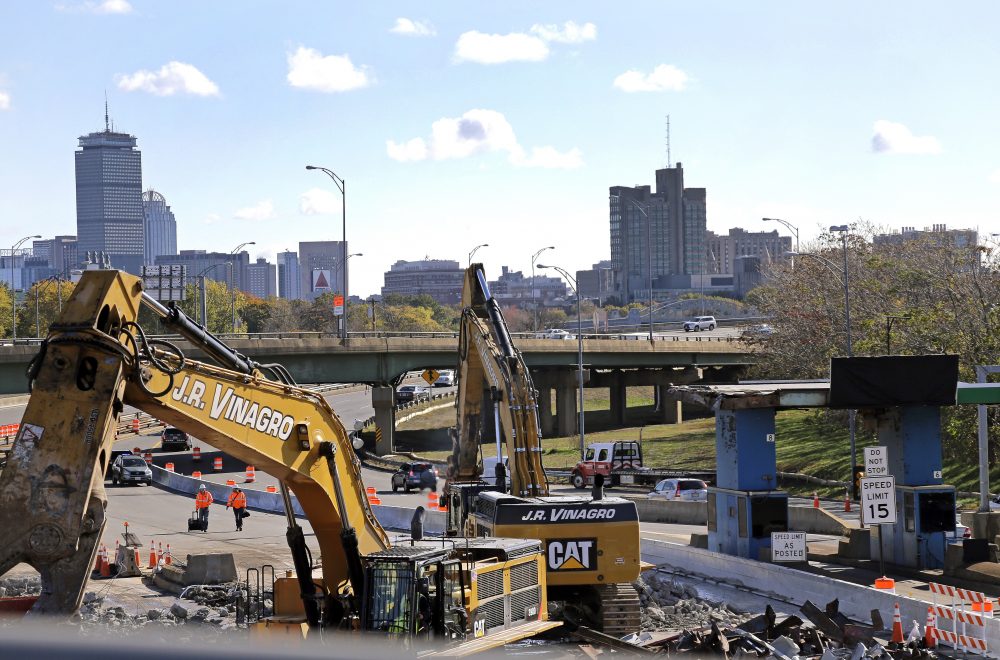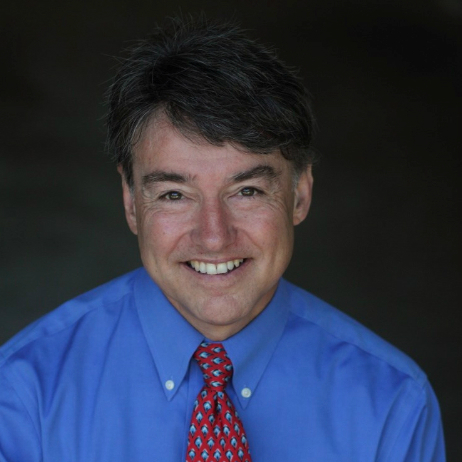Advertisement
The Man Who Tried To Abolish Tolls Looks Back And Grimaces

COMMENTARY
When the tollbooths were recently demolished on the Mass. Pike, I received numerous messages praising me.
“Good job!” and “Finally.”
I wanted to vomit.
From 1993 to 2000, I led a group to abolish tolls on the Mass. Pike. In the late '80s, my car had been destroyed on the Pike; while waiting at the tollbooths, fishing for a quarter, I was struck from behind by a pickup that sent my car smashing through the gate.
I think that was only time I got to go through the tolls without paying.
The pickup driver — probably drunk — drove around what was left of the gate, and my car, and went off into the night. I did 15 minutes of research at the Newton library, and discovered that the tolls were supposed to have come down when all the construction loans were paid, estimated as 1984.
So why did the tolls stay up? Easy answer: easy money. About $300 million a year in revenue, for a road that was built in the 1950s and fully paid off in 1984. The money was hijacked by the Legislature to pay for the financially troubled Big Dig. Every administration since 1984 had taken the toll money and pumped it into other projects.
Look, I’m a Democrat. I consider taxes to be the price you pay for infrastructure and schools and everything else that serves the people. But I don’t take kindly to being ripped off. I’m one of those commuters from the western suburbs who helped pay off the Pike, so why was it OK for me to pay for the Big Dig, the shiny, new north-south road, whose own commuters got a free ride?
Advertisement
I soon learned that the toll issue was the quickest way to no man’s land.
But it didn’t have to be. Massachusetts allows its citizens to create their own laws using the ballot process. So I started a political group to get the law changed, to take down the tolls by a vote, not by revolution. And the icing on the cake? It might — just might — help get me on the path of a political career. I’d gone to Harvard’s Kennedy School, and certainly liked the idea of becoming the people’s crusader.
I soon learned that the toll issue was the quickest way to no man’s land. I alienated almost every Democrat, who loved the idea of employing nearly 1,500 toll collectors at about $60,000 a year. (Never mind, that in most states these jobs are handled by wire baskets.)
And, I learned, getting a job as a toll collector was the single most requested job asked of members of the Legislature.
I also alienated almost every Republican, who like the tolls because they are fees, not taxes. How Orwellian: Tolls are suddenly a fee commuters pay voluntarily.
So, in my first act as a rookie politician, I alienated both parties. Maybe that’s what I actually wanted to be, the outsider. But it was certainly lonely.
I also learned that politics in Massachusetts is a contact sport. Death threats on my home answering machine. Newspaper editors that refused to meet. Unions spending hundreds of thousands to keep toll collector jobs. Even a razor blade planted in the handle of my car door. Did I mention that toll collectors were part of the Teamsters Union?
Death threats on my home answering machine. Newspaper editors that refused to meet. Unions spending hundreds of thousands to keep toll collector jobs. Even a razor blade planted in the handle of my car door.
But what we had were the people. You have to collect 64,000 signatures, in six weeks, to get on the statewide ballot. We had upwards of a thousand volunteers, fantastic patriots who gave up their weekends to stand in the cold and get distracted shoppers to sign a petition, simply to get our question on the statewide ballot.
It took six years, and three attempts, for us to get the question on the ballot. We even eventually got Gov. Bill Weld to sign our petition. The state treasurer collected signatures for us. A leading Democratic state senator made it a key issue. We were hated for exposing the emperor for not wearing clothes. I remember the current state Senate president, Stan Rosenberg, shouting at me during the Democratic convention. We met with Gov. Charlie Baker, back when he was a member of Weld’s cabinet, and he was an utterly objectionable fellow, angrily saying our group was the biggest threat to funding the Big Dig.
In the end, we were outspent about 10 to 1, and lost at the ballot box, 43 to 57 percent. We got over a million votes. In 2016 Charlie Baker took down the tollbooths, but kept the tolls up — electronically. Your credit card is whacked whenever you drive under those license plate readers. When you ride the Pike, you pay the Baker tax to help pay for the Big Dig. The tolls haven’t come down. They’ve just been modernized.
But they’re still there.
